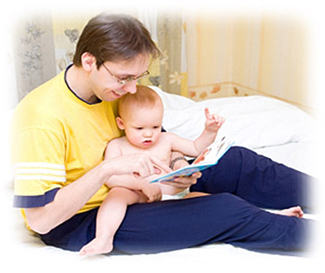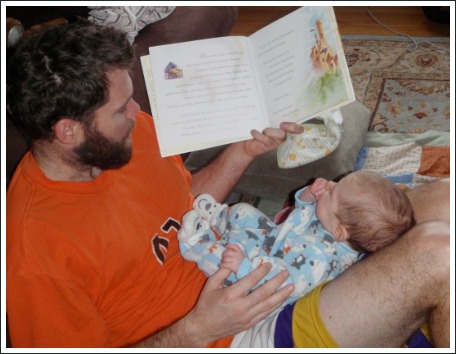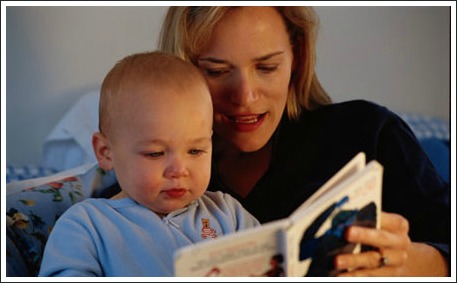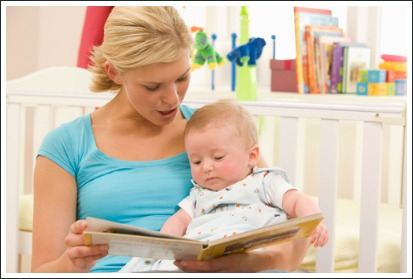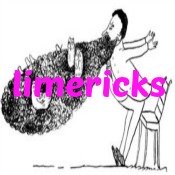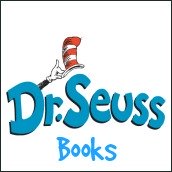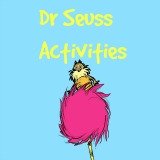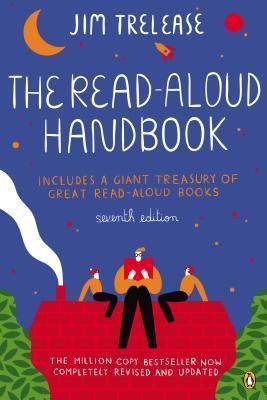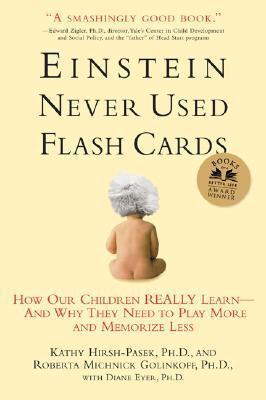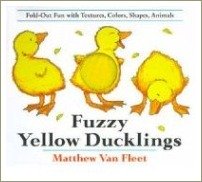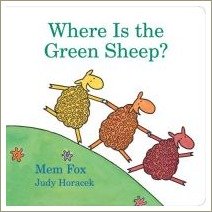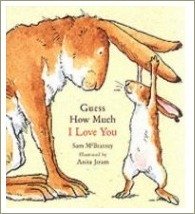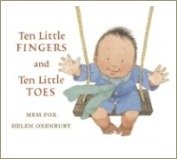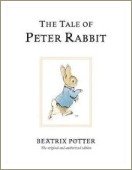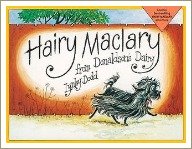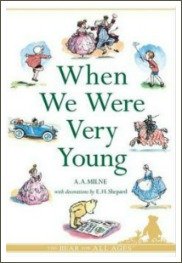You are here: home / reading to children / reading to your baby
Reading to Your Baby
Reading to babies from their earliest days gives them a head-start in life in so many ways. It's also a lovely bonding experience and the earlier you start, the better!
In fact, the very best time to start reading to your baby is on the day he or she is born. The gentle rhythm of a simple children’s story will be soothing for your new little person who has, after all, had a stressful day and it will be a memory that you will treasure forever.
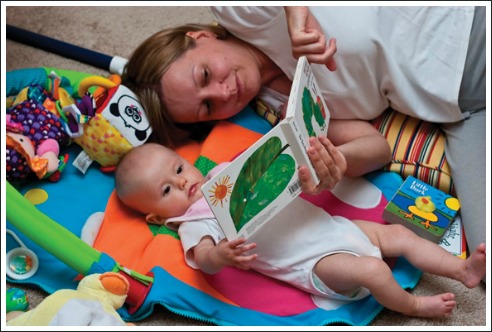
The fact that a newborn baby is capable of responding to books sometimes surprises parents. But quietly observe your little one as you read or, perhaps, as your partner reads and you'll be able to see the signs that he or she is enjoying the experience.
And the evidence that reading to babies is important for their development is absolutely rock-solid. Reading aloud brings benefits for you and your baby now and in the future and actually creates the foundations for learning to read later on.
How does this work? On this page, you'll read about why reading to your baby is important, when to start, how to do it and which books to read.
learning to read I what to read I how to read I older babies I mobile babies
Why Reading to Your Baby Matters
So why is reading aloud to babies so important?
First and most importantly, reading to your baby is a lovely bonding experience.
Your baby grew used to the sound of your voice when he was in the womb and now that he's out in the big, noisy, confusing world that's so different to the environment he knew in the womb, he associates your voice with comfort, safety and love. This means that hearing your voice as you read to him will invoke these feelings in his little body, making him feel safe and loved. In fact, reading to your baby in a gentle, calm voice will often calm him if he's restless.
The second reason for reading to your baby is that it plays a vital role in helping develop three essential pre-reading skills:
Of these three skills, phonological awareness is probably the most important and it's also the one that's most relevant to young babies.
You can read more about phonological awareness here but basically it's an awareness of how our language sounds and how it's structured. This might sound complex but babies start to develop phonological awareness when they're born and reading aloud helps to stimulate its development.
Phonological awareness is different from phonemic awareness which is explicitly taught at school when children are learning to read. Phonological awareness develops before phonemic awareness and it can't be taught however it very important because it's known to be a reliable predictor of a child’s later reading ability.
Reading to Your Baby: Learning to Read
Many people think that learning to read is something that happens when their child starts school but learning to read actually starts much, much earlier than this.
It might seem obvious but we often forget that reading and writing are based on oral language. This means that the better a child's oral language skills are when he starts school, the easier he will find learning to read.
So, in fact, the learning-to-read process starts at birth when babies start to tune in to the sounds and rhythms of spoken language. Parents and other people who love the new baby begin talking to this new little person from the time he or she is born and this is how babies begin to acquire language skills. Sure, it will be a while before your little one can say words that you recognise but he's listening and his brain is being wired and growing every time you speak, sing or read to him.
There is a huge amount of evidence to show that reading aloud to children when they’re young plays a vital role in helping them acquire language, vocabulary and phonological awareness. And, as a primary school teacher, I know that children whose phonological skills are well-developed when they first come to school usually learn to read quickly and easily, sometimes before they start school. In fact, they often learn to read quite naturally, with little in the way of formal teaching. Sounds amazing, doesn't it? Yet, I've seen this happen with quite a few children over the years.
The importance of reading aloud to children when they're very young for learning to read later on was also brought home to me when I did my first teaching practicum in a Kindy classroom in Sydney. Although I was in a fairly well-to-do suburb, I found that many children were not being read to by their parents at home. The differences between the two groups of children became very clear when they were learning to read and when they were beginning to learn to write.
So reading to your baby is actually the start of the learning-to-read process. And there's no need for any fancy, expensive learning-to-read programs or flashcards!
What Should I Read?
You can read anything to a newborn baby – the book you’re reading, the newspaper … anything at all. Your baby will respond to the rhythm of the words and the sound of your voice, rather than the words themselves. He’ll be comforted by your voice and may even be lulled to sleep as you read, particularly if you’ve read to him before he was born.
OK, you can read anything you like but there are some lovely books for babies to chose from and they’re great fun to read.
My top picks are the books on the right of this page. (Note: book covers and titles are affiliate links.)
If you're not sure where or how to start, I suggest you choose three books to begin with:
- a bed-time book you read every night. The book then becomes part of your child’s bed-time routine and will come to be a comforting signal that it’s time to go to sleep. Guess How Much I Love You is a great choice;
- a book of poems for young children or a collection of nursery rhymes;
- a fun children’s book that’s not too long and which incorporates rhyme and rhythmic language. Hairy MacLary from Donaldson’s Dairy by Lynley Dodd is a great choice;
How to Begin Reading to Your Baby
Reading aloud comes naturally to some people but if you haven’t done it before it can feel a bit weird or even embarrassing. It’s something we usually don’t have any experience with until we have our own children so it can be hard to know how to begin.
Mem Fox’s fantastic little book Reading Magic is fun to read and is packed with practical tips and advice about how to read aloud. I've also compiled some tips to help get you started here.
If your baby is ill or premature and has to spend time in hospital, you may like to read my page about how reading aloud can help.
The most important things to remember when you're reading to your baby are:
- don’t read too quickly. Many parents make this mistake. Read more slowly than you think you should;
- read with expression, paying attention to the rhythm of the text and to the repetition and rhyme often found in books for young children;
- read often – at least every day for ten minutes, more often if you can;
- hold your baby close as you read so he begins to associate reading and books with feelings of comfort, security and pleasure;
Reading to Older Babies
You may find that reading to your baby gets a bit tricky around the age of about five or six months.
At this stage, many parents think reading to babies is a waste of time because their baby seems more interested in chewing or playing with the book than listening to the story. Babies often get restless too and sometimes don't seem interested in listening after the first few minutes and many people also think, well, the baby doesn't understand what I'm reading so why bother?
Pretty much all of us think this way at some point but it's important to understand that this is perfectly normal behaviour and does not mean you should stop - or put off - reading to your baby. By all means try to gently discourage too much chewing but do let your baby handle the books.
Here are six thing to try at this age:
- choose short books for a while. As your baby gets older and gets used to sitting and listening to stories, you can gradually move on to longer books;
- if the book isn't a very precious one, do let him play with it a bit as you read. As he gets older, he'll want to turn the pages as he's seen you do;
- stick mainly to reading board books for a while. This means you can let your baby turn the pages and handle the book by himself, which is fun for him as well as being a great learning experience;
- keep reading! Your baby is listening, even f it doesn't look like it;
Reading to Mobile Babies!
Once your baby can crawl and then walk, keeping books accessible is important.
Try having board books and maybe some books you’ve found in charity shops scattered around the house for your baby to read whenever he likes. Choosing books like this means you can let him have free reign without worrying about the books getting damaged.
You can keep any special books on a high shelf to be brought down by mum or dad and read with supervision. This is a good way to protect these books and also teaches your child that some possessions need careful handling.
Something that worked really well in our house when my children were babies was having a book basket on the floor in the living room. I'd change the books around every so often and the boys loved getting the books out on their own and sitting down to "read" them. It really was very cute and I loved the fact that they were learning to love books.
